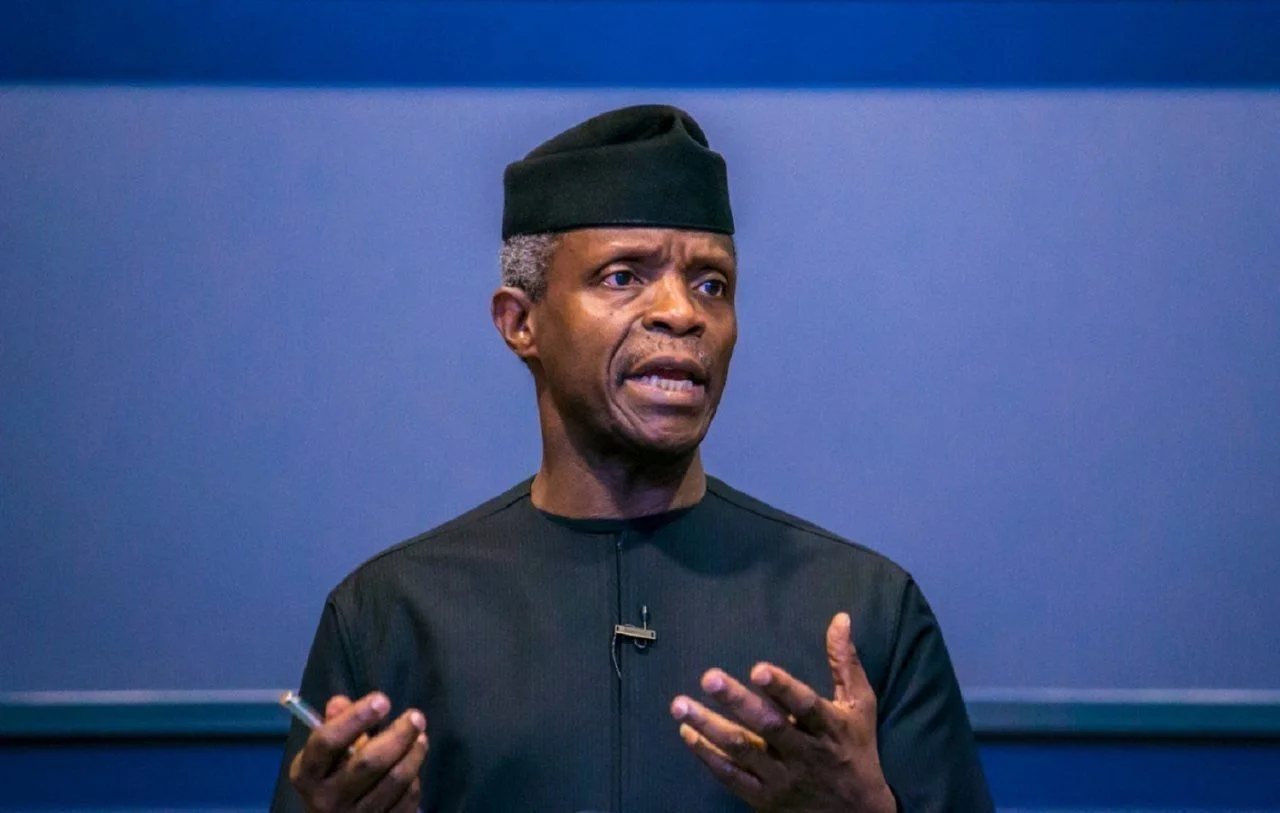Vice President Yemi Osinbajo says he believes that the answer to Nigeria’s socioeconomic problems is not geographical restructuring but deeper fiscal federalism and good governance.
He says those who are mouthing the word “restructuring” and agitating endlessly for it have a “vague” concept of it, including his predecessor in office, Atiku Abubakar.
Osinbajo made the remarks in a piece he sent to the PREMIUM TIMES in response to an opinion earlier published in that newspaper entitled ‘Osinbajo Got It Wrong on Restructuring –Atiku’.
Atiku had faulted Osinbajo on the comments the latter made in a presentation at the Minnesota Town Hall meeting, United States.

But the vice president argued that what Nigeria requires is not geographical restructuring “but good governance, honest management of public resources, deeper fiscal federalism, and a clear vision for development.”
“We should rather ask ourselves why the states are underperforming, revenue and development-wise,” he noted.
He cited the example of the Western Region – which he noted comprised even more than what is now known as the South West Zone – “where, without oil money, and using capitation tax and revenues from agriculture and mining, the government funded free education for over 800,000 pupils in 1955, built several roads, farm settlements, industrial estates, the first TV station in Africa, and the tallest building in Nigeria, while still giving up fifty percent of its earnings from mining and minerals for allocation to the Federal Government and other regions.”
Good governance, he stressed, involves transparency and prudence in public finance; social justice, investing in the poor, and jobs for young people.
(This) explains our School Feeding Programme, providing a meal a day to over nine million public school children in 25 states as of today.
“Our N-Power is now employing 500,000 graduates; our TraderMoni that will be giving microcredit to two million petty traders; our Conditional Cash Transfers giving monthly grants to over 400,000 of the poorest in Nigeria. The plan is to cover a million households,” he noted.
Osinbajo said he had always been an advocate of fiscal federalism and stronger state governments. He said he had also argued in favour of state police, because he believes that policing is a local function, and it is not possible to effectively police Nigeria from Abuja.
However, he stressed that geographical restructuring is not the answer to Nigeria’s problems, as it would only result in greater administrative costs.
Nigeria’s biggest problem, he stressed, is grand corruption.
He said, “In arguing for good governance, I made the point that our greatest problem was corruption. I pointed out that grand corruption, namely the unbelievable looting of the treasury by simply making huge cash withdrawals in local and foreign currency, was the first travesty that President Buhari stopped.
“I showed the OPEC figures from oil revenues since 1990. In four years from 2010 to 2014 the PDP government earned the highest oil revenues in Nigeria’s history, USD381.9 billion.
“By contrast the Buhari Administration has earned USD121 billion from May 2015 to June 2018, less than 1/3 of what Jonathan Administration earned at the same period in that administration’s life.
“Despite earning so much less, we are still able to invest more in infrastructure than any government in Nigeria’s history. The difference is good governance, and fiscal prudence.”
Osinbajo said restructuring in whatever shape or form will not mean much if political leaders continue to see public resources as an extension of their bank accounts.


